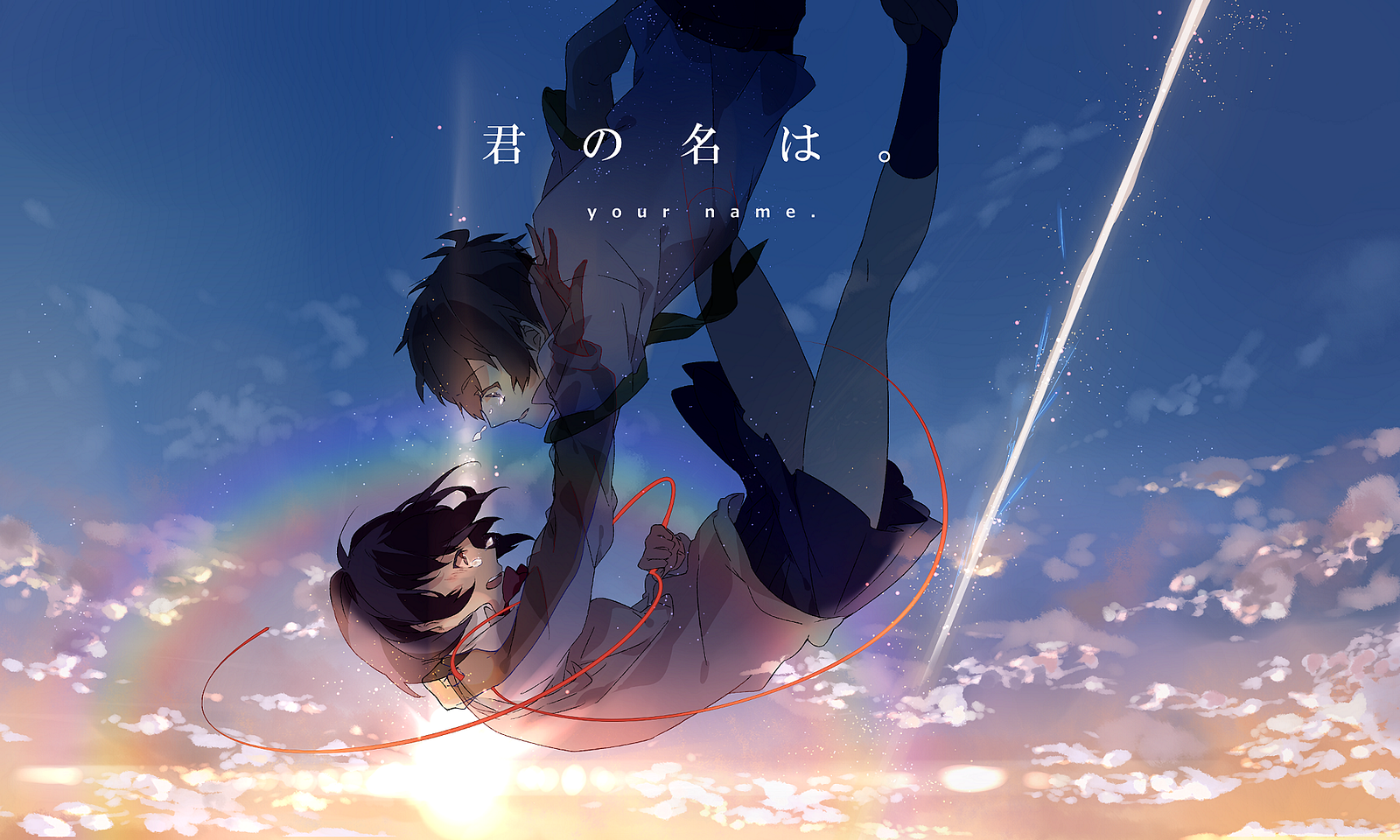
Synopsis
Your Name by Makoto Shinkai is a huge commercial success in 2016 worldwide cinema, acclaimed for its intricate storyline and animation style. It is not only a story of teenage love but also a discussion of urban versus rural as well as time, deity, and identity. The female protagonist, Mitsuha, is a small town girl who dreams to live in modern living space like Tokyo. Taki, the other protagonist, is a high school boy who lives in Tokyo. Their life intertwined when waking up one morning in the other's body. Realizing the body-swap isn't a dream, they managed to experience each other's lives while making changes to the other's status and social relationships. During the process of living a different life, Taki and Mitsuha developed feelings for each other and eventually propelled Mitsuha to find Taki in Tokyo. The plot takes a huge turn here, diverting viewers' attention to the comet that destroyed the village three years ago in Taki's time. Trying to find "the girl who he doesn't remember the name", Taki strives to visit the village and realized Mitsuha is already dead in the disaster. However, after drinking Mitsuha's kuchikamizake (a part of the girl's soul) in the shrine, they swapped again and the village is saved because of their efforts. Your Name entails the discussion of adolescence relationships, and also reminiscence to the disappearing village/traditional culture or a way of living in the rural area, while revering deity and nature. It is a poetic artwork. Your Name's structure is the key to mystery. With the time and space shifting with the life of Taki and Mitsuha, viewers' thoughts are lead by the event in the film and how events and people are connected.
Themes
The majors themes of the film are love, cultural nostalgia, disaster, and the concept of deity (Musubi) or human connection. Shinkai strategically delineates the beauty of adolescence experience of the development of love. It is not simply romantic feelings but also a sense of soul connection. The protagonist's connection is experienced through the body swap. It is romantic to connect strangers like this, especially in geographic context of Tokyo and Itomori. One interpretation is that Shinkai is reminiscing the disappearing idyllic life across Japan, and specially in modern cities like Tokyo. By connecting two strangers together, Shinkai is recreating the modern urban relationship that's less lonely and extremely romantic. The concept of soul connection or soulmate is attractive for modern men and women. However, analyzing from a sociological perspective, the narrative of Your Name is the product of heterosexual exceptionality, which is often used in Disney films that elevate romantic experience to a divine/exceptional/transcendental level. It is disappointing to presume modern obsession with love and romance is the product of human creation under the influence of power, state, and capitalism. But all in all, Shinkai's depiction of Mitsuha and Taki's relationship is delightful and reminiscent of the strange or unique feelings of being an adolescent.
Melodrama
I think Your Name is not necessarily melodramatic. Contrary to traditional melodrama, its focus is teenage romance and sci-fi. The main characters' experiences are dramatic but not melodramatic. Although there are patriarchal role like Mitsuha's father, there are not really evil characters in this film, other than the "comet" that destroyed the village. There are twists and turns during the development of the film, but they are mystery related instead of social relationship related drama. There are melodramatic element like the character setting of Mitsuha who lost her mother and lives with her grandma. However, because of the lack of extremely sensational and emotional viewing experience, Your Name is not as melodramatic as other films that we've watched in this class.
Characters and Critics
Characters and Critics
Although Shinkai's Your Name is a brilliant trial in Japanese animated film, having novel elements like body swap, traditional culture, and deity, it still has room for improvements. One major factor is the construction of characters. While I was watching this film, I realized other than the name "Mitsuha" and "Taki" I cannot formulate an active images of the protagonists. The personality of the characters are not appealing or real enough to leave a dent in viewers' minds. For example, Cary in All Heaven Allows is partially traditional but has a spirit for novelty and adventures. She has the courage to be with Ron and partially contempt the upper/middle-class social status. The Thoreau's spirit is in her and views know that through her choices and actions. About Mitsuha, we know she's a high school girl who longs for modern life, but viewers won't remember her other than that. We don't know what makes her "her". Shinkai, in this film, focuses too much on "style" and metaphorical signs or fashions of time travel, body swap, mystery, and disaster. He neglected the depth or a well-explored "content" or "essence of social relations" behind the "signs". I really appreciate his depiction of tender teenage love and divine connection with nature and culture. However, I believe there could be a more complex depiction of the themes instead of just a superficial introduction of the concepts. Although Susan Sontag has argued the importance of style and the modern over-zealous attention to content, which created a binary relationship of style and content, I still want to argue Your Name is too symbolized and lost certain honest human experience and complexity with its overly poetic lines and emotional representation.






No comments:
Post a Comment